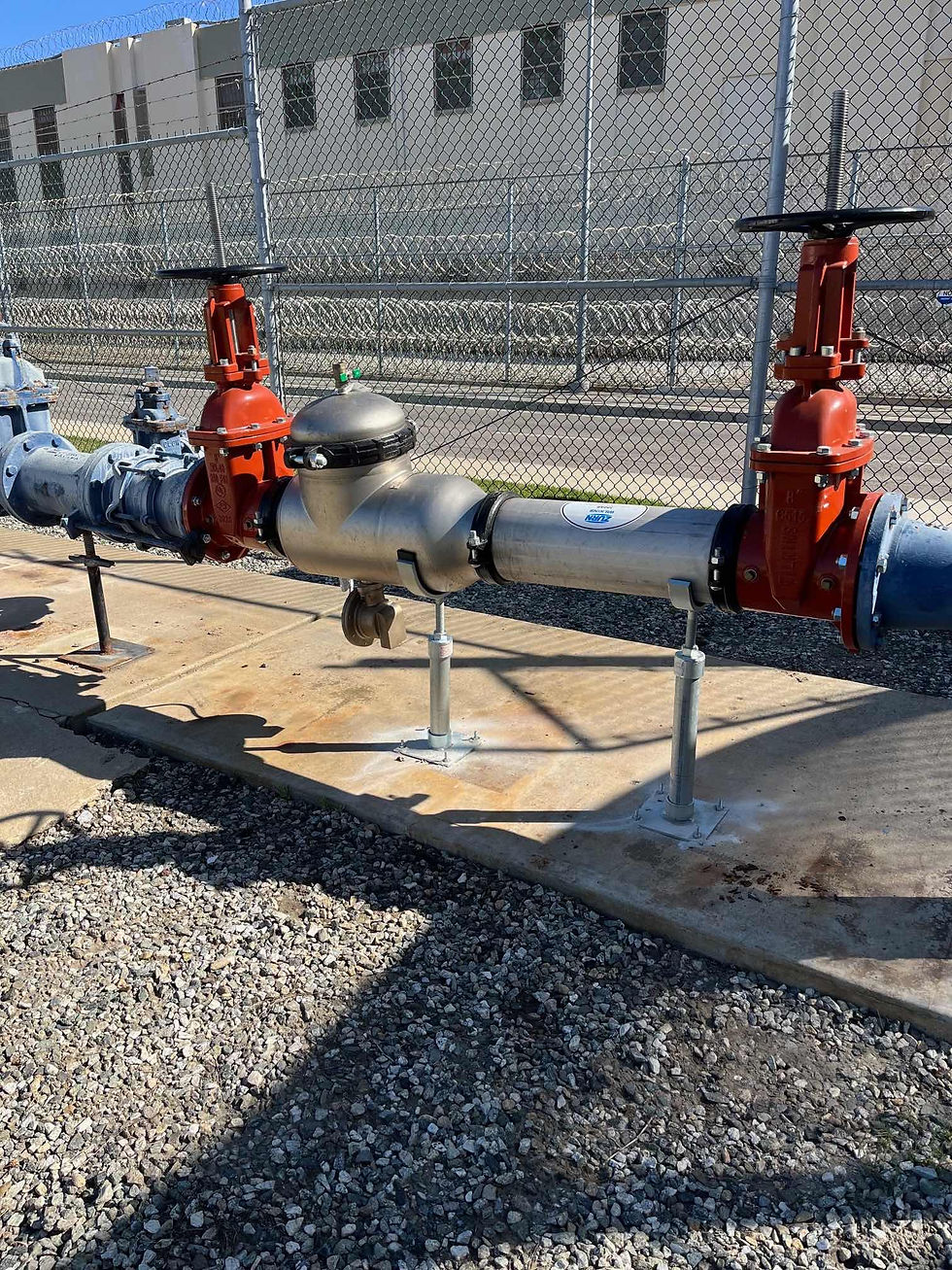How Often Should I Have My Backflow Preventer Inspected?
- bill57931
- May 16, 2025
- 2 min read

A backflow preventer is a critical part of your plumbing system that ensures your clean water supply remains free from harmful contaminants. Regular inspections and testing of your backflow preventer are essential to keep it functioning properly.
If you're wondering, "How often should I schedule backflow testing in Long Beach?" this article will help you understand the recommended frequency and why it's so important.
What Is a Backflow Preventer and Why Does It Need Testing?
A backflow preventer is a device designed to stop water from flowing backward into your clean water supply. Without one, there’s a risk of contaminants like pesticides, fertilizers, or bacteria entering your drinking water during pressure changes in the system. However, backflow preventers are mechanical devices, and like any system with moving parts, they can wear out or malfunction over time.
This is why regular backflow testing in Long Beach is crucial. Testing ensures that the device is working as intended and complies with local safety regulations.
How Often Should You Have Your Backflow Preventer Inspected?
The general rule of thumb is to have your backflow preventer inspected and tested at least once a year by a certified professional. Annual testing is often required by local water authorities to ensure public water systems remain safe. However, the exact frequency may vary depending on a few factors:
Local Regulations
In areas like Long Beach, there may be specific ordinances requiring annual testing for backflow prevention devices. Check with your local water district or municipality to confirm the requirements for backflow testing in Long Beach.
Type of Property or System
Commercial properties, especially those dealing with hazardous materials, may require more frequent testing—sometimes every six months. Residential properties, on the other hand, typically adhere to the yearly inspection schedule unless otherwise specified.
Age and Condition of the Device
Older backflow prevention devices or systems with a history of issues may require more frequent inspections to ensure they remain in good working order.
Post-Repair Testing
If your backflow preventer has been repaired or replaced, it should be tested immediately to confirm that it is functioning correctly.
What Happens During a Backflow Test?
During backflow testing in Long Beach, a certified technician will inspect your backflow preventer for leaks, pressure issues, and overall performance.
They’ll use specialized equipment to measure water pressure and confirm that the device is preventing reverse water flow effectively. If the device passes the test, they’ll issue a certification, keeping you compliant with local laws. If it fails, they’ll recommend necessary repairs or replacement.
Why Regular Testing Is Important
Regular testing of your backflow preventer protects your water supply from contamination, ensures compliance with local regulations, and helps you avoid costly repairs in the future. By scheduling annual backflow testing in Long Beach, you can have peace of mind knowing your water system is functioning properly and safely.
Final Thoughts
To protect your drinking water and remain compliant with local laws, it’s essential to test your backflow preventer every year—or more frequently if required by regulations or system conditions. If you’re due for backflow testing in Long Beach, don’t wait.
Contact a licensed professional today to schedule your inspection and safeguard the quality of your water supply!





Comments